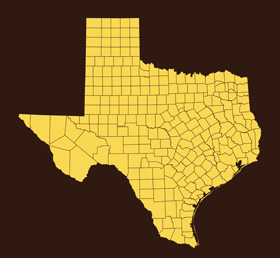Supreme Court strikes down one legislative district in Texas as racial gerrymander, upholds others

The U.S. Supreme Court on Monday struck down one state legislative district in Texas as a racial gerrymander, but upheld several other redrawn districts, including two federal congressional districts.
Justice Samuel A. Alito Jr. wrote the majority opinion, joined by Chief Justice John G. Roberts Jr. and Justices Anthony M. Kennedy, Clarence Thomas and Neil Gorsuch. Justice Sonia Sotomayor wrote the dissent.
Anthony Gutierrez, executive director of Common Cause Texas, said in a press release that the Supreme Court’s decision “dealt a severe blow” to voting rights in Texas.
The Supreme Court struck down Texas House District 90, which surrounds Fort Worth, as an impermissible racial gerrymander, ABC News reports.
One of the federal congressional districts upheld by the Supreme Court is District 27, the Houston Chronicle reports. It had been represented by Blake Farenthold, a Corpus Christi Republican who resigned amid sexual harassment allegations.
The other congressional district upheld by the court is District 35, which runs from Austin to San Antonio and is represented by Democrat Lloyd Doggett.
The two federal congressional districts were incorporated in interim maps drawn by a federal court for use in 2012 elections after a court challenge. The Texas Legislature adopted the court’s maps in 2013, with mostly modest modifications. Texas had argued the maps weren’t discriminatory because the court had made them. A three-judge district court disagreed, reasoning that discrimination from state maps drawn in 2011 had carried over in the interim plan.
Alito upheld the congressional districts, as well as several state legislative districts. “We now hold that the three-judge court committed a fundamental legal error. It was the challengers’ burden to show that the 2013 legislature acted with discriminatory intent when it enacted plans that the court itself had produced,” he wrote.
Alito said the state attorney general had advised the 2013 legislature that the best way to end redistricting litigation was to adopt the court-issued plan. The legislative sponsor voiced the same objective, Alito said. “On its face, this explanation of the legislature’s intent is entirely reasonable and certainly legitimate,” he said.
HD90, however, was substantially modified by the legislature. In 2011, the legislature had increased Hispanic population in the district in response to pressure by the Mexican American Legal Defense and Educational Fund. As part of that effort, the legislature had moved one primarily African-American community, Como, out of the district. After objections from Como residents and its representative, the legislature moved Como back into the district in 2013 and also moved in more Hispanics to bring the Hispanic population above 50 percent.
“We hold that HD90 is an impermissible racial gerrymander,” Alito wrote.
In dissent, Sotomayor said the majority had intervened prematurely in the case, mistakenly faulted the district court for supposedly shifting the burden of proof to the state, and selectively parsed through the facts.
“This disregard of both precedent and fact comes at serious costs to our democracy. It means that, after years of litigation and undeniable proof of intentional discrimination, minority voters in Texas—despite constituting a majority of the population within the state—will continue to be underrepresented in the political process,” Sotomayor wrote.
The case is Abbott v. Perez.
Related articles:
ABAJournal.com: “In a 5-4 split, Supreme Court stays orders in Texas gerrymandering case requiring redrawn districts”
ABAJournal.com: “Supreme Court accepts cases on appointment of SEC judges, retailer sales taxes, redistricting”
ABAJournal.com: “Federal court finds two Texas congressional districts are racially gerrymandered, must be redrawn”
ABA Journal: “Data scientists help courts grapple with increasingly divisive maps”



